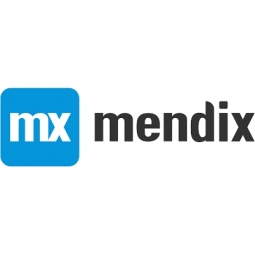Technology Category
- Infrastructure as a Service (IaaS) - Public Cloud
- Platform as a Service (PaaS) - Application Development Platforms
Applicable Industries
- Buildings
- Finance & Insurance
Applicable Functions
- Logistics & Transportation
- Product Research & Development
Use Cases
- Inventory Management
- Last Mile Delivery
Services
- Cloud Planning, Design & Implementation Services
- Testing & Certification
About The Customer
Archway Software was born from the Innovation Lab of WaFd Bank (previously known as Washington Federal Bank). Dustin Hubbard, now President at Archway, served as WaFd’s CTO from 2019 through 2022. Hubbard selected Mendix and with 4 developers delivered WaFd’s online banking portal in just 10 months. The success of this project sparked several new ideas for Hubbard’s team. In December of 2022, Archway formally spun out as an independent software vendor (ISV) in the Mendix ecosystem. Today, Archway offers banking innovation as a service across three pillars: developing great client experiences with adaptable solutions for online banking, back office bank management, call center management, operating on a common architecture, and unifying data.
The Challenge
Regional banks play a crucial role in the economic health of communities by offering greater access to funding and personalized services. However, over the last two decades, these institutions have found it increasingly difficult to compete with larger national banks due to customer demand for more convenience and digital touchpoints in banking, and their lack of IT expertise to deliver them. Large national banks have hundreds of people dedicated to software development and can make up for their lack of personal client relationships by offering sleek, easy-to-use applications. This has become particularly important in a post-COVID era, where digital convenience often overshadows the personal touch of in-person banking. Regional banks are at a crossroads – their lean IT budgets are hardly enough to develop enterprise-grade software with traditional code, and commercial-off-the-shelf solutions are typically restrictive.
The Solution
Archway Software, spun out from the innovation lab of a regional bank, aims to level the playing field by providing financial institutions with adaptable solutions in a timeline, price point, and delivery model that addresses the gaps in their software development abilities. Archway’s solution offerings are built on enterprise-grade technologies such as the Mendix low-code platform and AWS, enabling their customers to achieve a 4x faster delivery for solutions such as customer banking portals and Customer 360 dashboards. Archway offers an alternative to the build vs. buy quandary – investing in adaptable solutions – where 80% of a solution is based on a common architecture which can be reused across various organizations, and the remaining 20% can be adapted through customization, extensions, or integrations. Archway also provides access to enterprise-grade technologies like Mendix and AWS, hosting all of their solutions on AWS, either by way of the Mendix Public Cloud or Amazon EKS.
Operational Impact
Quantitative Benefit

Case Study missing?
Start adding your own!
Register with your work email and create a new case study profile for your business.
Related Case Studies.

Case Study
Energy Saving & Power Monitoring System
Recently a university in Taiwan was experiencing dramatic power usage increases due to its growing number of campus buildings and students. Aiming to analyze their power consumption and increase their power efficiency across 52 buildings, the university wanted to build a power management system utilizing web-based hardware and software. With these goals in mind, they contacted Advantech to help them develop their system and provide them with the means to save energy in the years to come.

Case Study
Intelligent Building Automation System and Energy Saving Solution
One of the most difficult problems facing the world is conserving energy in buildings. However, it is not easy to have a cost-effective solution to reduce energy usage in a building. One solution for saving energy is to implement an intelligent building automation system (BAS) which can be controlled according to its schedule. In Indonesia a large university with a five floor building and 22 classrooms wanted to save the amount of energy being used.

Case Study
Powering Smart Home Automation solutions with IoT for Energy conservation
Many industry leaders that offer Smart Energy Management products & solutions face challenges including:How to build a scalable platform that can automatically scale-up to on-board ‘n’ number of Smart home devicesData security, solution availability, and reliability are the other critical factors to deal withHow to create a robust common IoT platform that handles any kind of smart devicesHow to enable data management capabilities that would help in intelligent decision-making

Case Study
Commercial Building Automation Boosts Energy Efficiency
One of the challenges to building automation is the multitude of non-interoperable communications protocols that have evolved over the years. Buildings have several islands of automation. Bridging the islands of different automation without losing the considerable investment in each specialized control network is the main focus in this solution.

Case Study
Protecting a Stadium from Hazardous Materials Using IoT2cell's Mobility Platform
There was a need for higher security at the AT&T Stadium during the NFL draft. There was a need to ensure that nuclear radiation material was not smuggled inside the stadium. Hazmat materials could often be missed in a standard checkpoint when gaining entry into a stadium.




